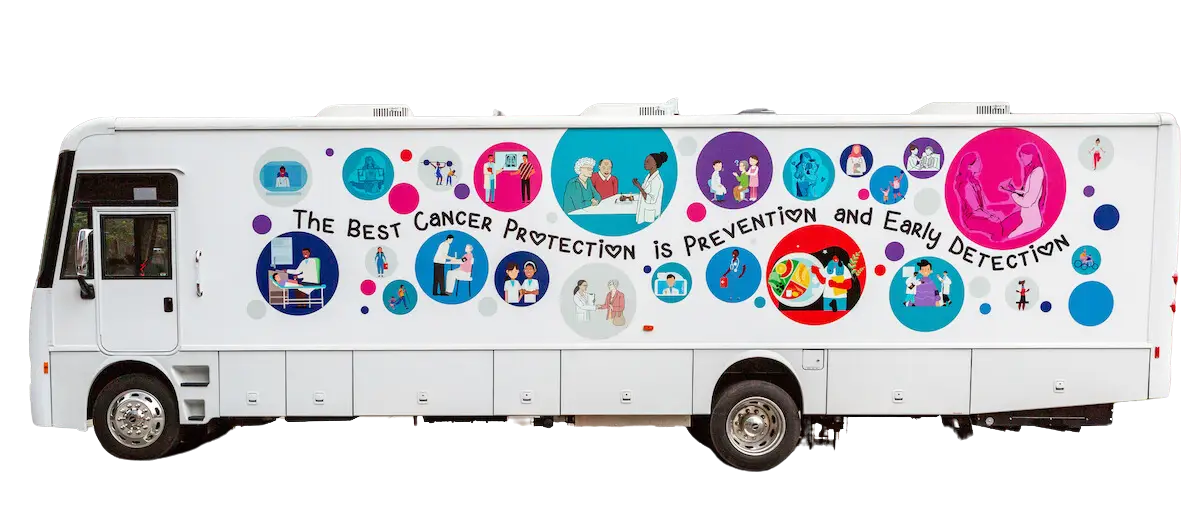Education: HPV-Related Cancer
HPV-Related Cancer Screenings
Currently, cervical cancer is the only HPV-caused cancer for which FDA-approved screening tests are available.
Screening for cervical cancer is an important part of routine health care for people who have a cervix. This includes women and transgender men who still have a cervix. Cervical cancer screening tests include the HPV test that checks cervical cells for high-risk HPV, the Pap test that checks for cervical cell changes that can be caused by high-risk HPV, and the HPV/Pap co-test that checks for both high-risk HPV and cervical cell changes.
- Anal cancer screening: Among populations that are at higher risk for HPV infection, such as men who have sex with men or men who are HIV positive, some research has found that an anal Pap test (also called an anal Pap smear) may help to detect early cell changes or precancerous cells.
- Oral cancer screening: Currently, there are no standard screening tests for oral cancer. However, dentists usually check for signs of oral and oropharyngeal cancer as part of a routine dental check-up.

HPV-Related Cancers Resources
Learn more with information courtesy of the National Cancer Institute. Vaccine information courtesy of the CDC.
HPV Vaccination & Cancer Prevention
Who should get HPV Vaccinated?
HPV vaccination is recommended at ages 11–12 years. HPV vaccines can be given starting at age 9 years. All preteens need HPV vaccination, so they are protected from HPV infections that can cause cancer later in life.
Teens and young adults through age 26 years who didn’t start or finish the HPV vaccine series also need HPV vaccination.
Vaccination is not recommended for everyone older than age 26 years. Some adults age 27 through 45 years who are not already vaccinated may decide to get HPV vaccine after speaking with their doctor about their risk for new HPV infections and the possible benefits of vaccination for them.


How well do these vaccines work?
HPV vaccination works extremely well. HPV vaccine has the potential to prevent more than 90% of HPV-attributable cancers.
Since HPV vaccination was first recommended in 2006, infections with HPV types that cause most HPV cancers and genital warts have dropped 88% among teen girls and 81% among young adult women.
Fewer teens and young adults are getting genital warts.
HPV vaccination has also reduced the number of cases of precancers of the cervix in young women.
Reasons to Get HPV Vaccine:
- 85% of people will get an HPV infection in their lifetime.
- Almost every unvaccinated person who is sexually active will get HPV at some time in their life.
- About 13 million Americans, including teens, become infected with HPV each year.
HPV is estimated to cause nearly 36,000 cases of cancer in men and women every year in the United States. HPV vaccination can prevent 33,000 of these cancers by preventing the infections that cause them.
DID YOU KNOW?
ScreenNJ Screening Statistics
Why Should You Get Screened?
One in two men and one in three women will develop cancer in their lifetime
Early diagnosis of cancer offers the best chance for successful treatment. When cancer care is delayed or inaccessible there is a lower chance of survival, greater problems associated with treatment, and higher costs of care.
Visit our Education page to learn more about various cancer types and screening options.
Types of Screenings Available:
- Breast Cancer
- Cervical Cancer
- HPV-Related Cancers
- Colorectal Cancer
- Genetically-Linked Cancers
- Lung Cancer
- Prostate Cancer
- Skin Cancer
Get the Assistance you need
Learn More About Patient Navigation
Patient navigators are trained, culturally competent healthcare professionals who work with patients, families, physicians and other healthcare providers to ensure cancer patients’ needs are appropriately and effectively addressed.
Get connected to a navigator to gain assistance with qualification, scheduling, transportation, and more.
Discover our mobile health unit
Free Cancer Screenings and Care Coordination for the uninsured and under-served across New Jersey
Now Offering:
- Patient navigation for care coordination
- Education and outreach
- Supportive services to address social determinants of health
- History and physical examinations
- Laboratory testing
- Referrals and authorizations


Who Qualifies for Screening?
The New Jersey Cancer Education and Early Detection Screening Program (NJCEED) is part of the New Jersey Department of Health.
NJCEED provides comprehensive screening services for breast, cervical, prostate, and colorectal cancer. The services include education, outreach, early detection, case management, screening, tracking, and follow-up. Breast, cervical, prostate, and colorectal cancers can be treated more effectively when found early.
Persons eligible for these services must be at or below 250% of the Federal Poverty Level and be uninsured or under-insured. For more information, please call 1-800-328-3838 or locate a screening location here.
Screening for cancer is covered with no deductible or co-pay by many insurance plans including Medicare, and patients with no insurance may be able to receive recommended cancer screenings at their NJ CEED agency or at other ScreenNJ partner sites. Visit our Frequently Asked Questions page to learn more.
